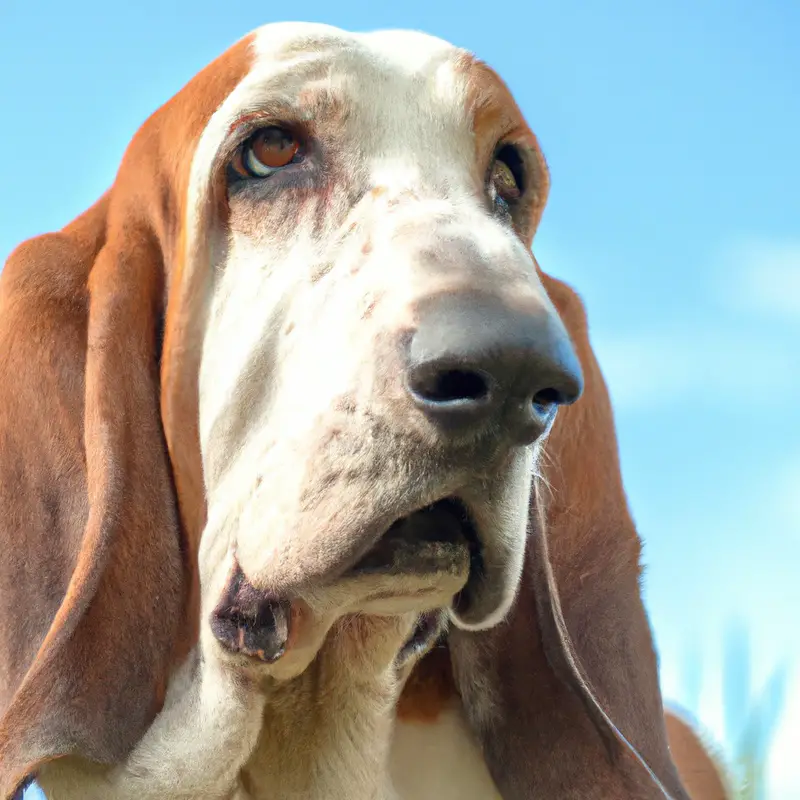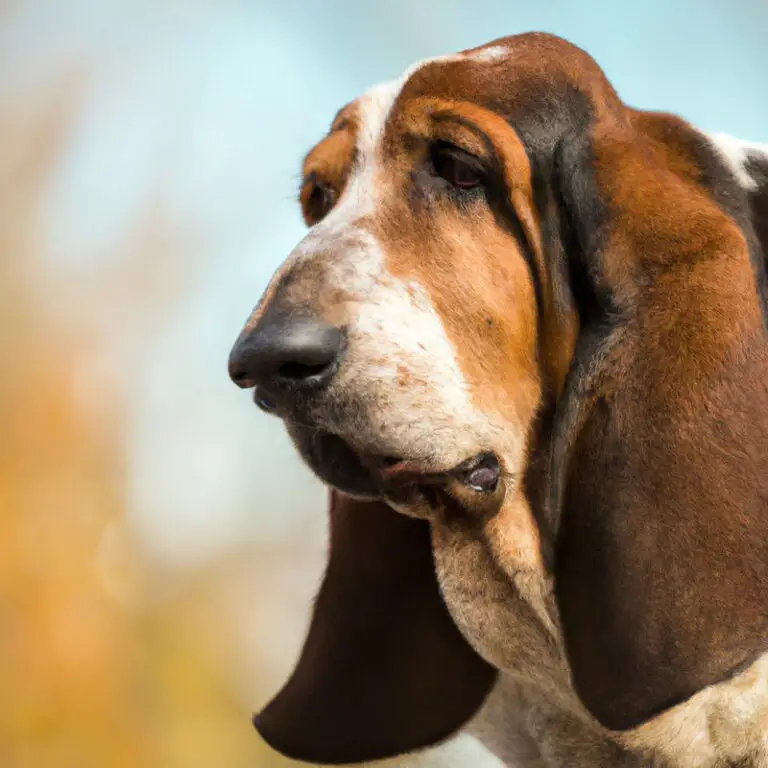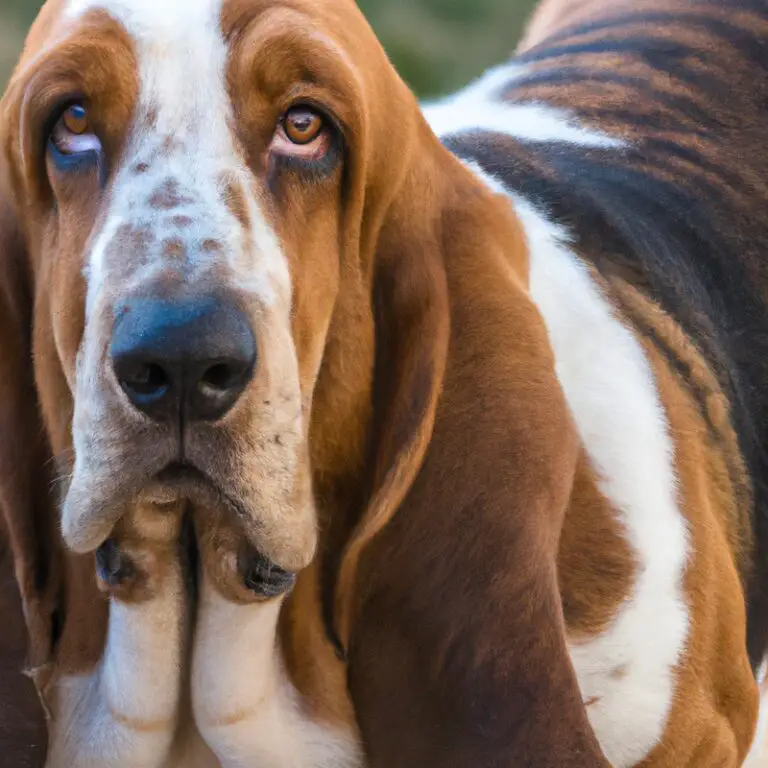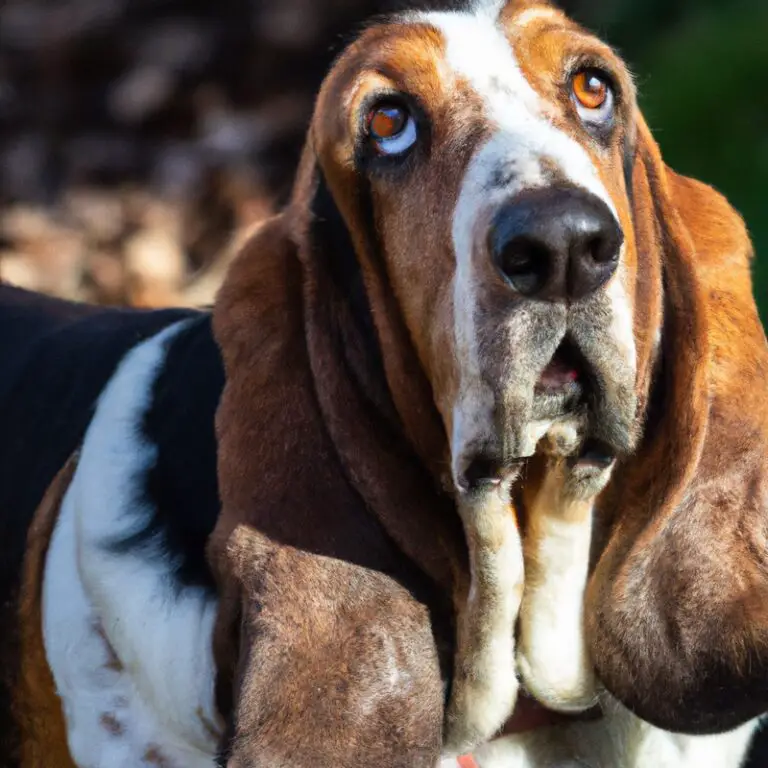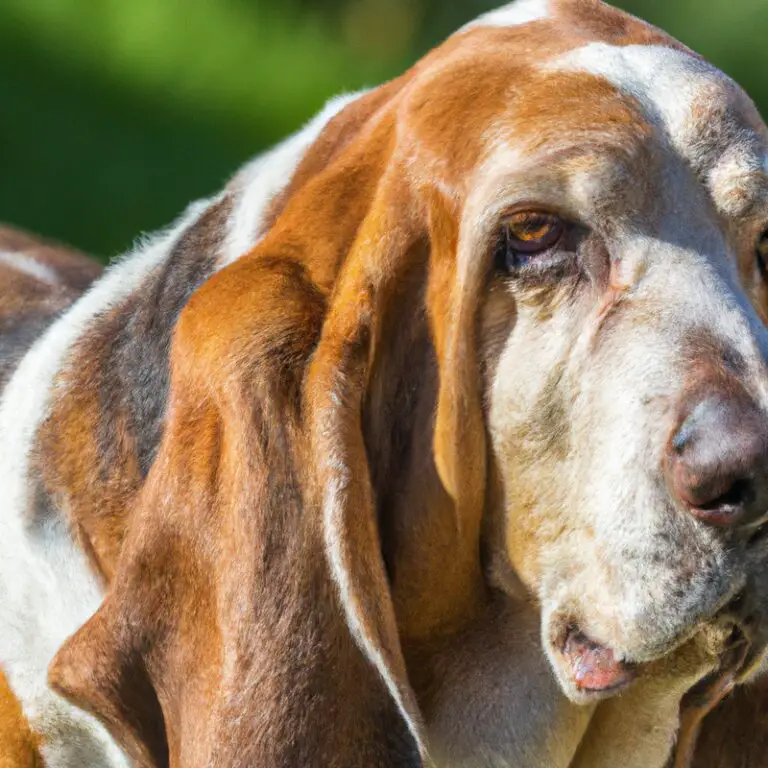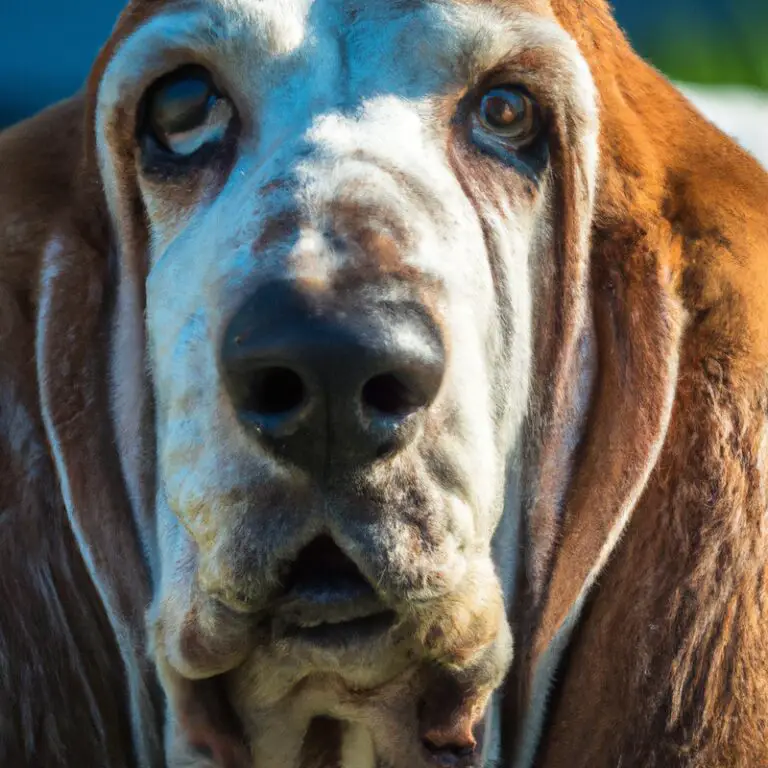Do Basset Hounds Have a Strong Hunting Instinct?
Key Takeaways:
- Basset Hounds have a strong hunting instinct due to their lineage and breeding purpose.
- Their keen sense of smell and tracking abilities make them natural hunters.
- Basset Hounds may exhibit hunting behavior and require training and supervision to manage their instinct.
- Their hunting drive can vary individually, but it’s important to provide mental and physical stimulation to fulfill their instinctual needs.
Imagine this – you’re out in the woods, surrounded by the whisper of leaves and the fresh scent of nature.
Suddenly, a powerful force within your four-legged companion awakens.
Their ears perk up, their nose twitches, and their eyes light up with an ancient determination.
This is the hunting instinct, an innate drive deeply ingrained in many dogs.
But what about Basset Hounds?
Do these uniquely charming and lovable creatures possess a strong hunting instinct?
Join me as we delve into the world of Basset Hounds and their natural inclination for the thrill of the chase.
| Aspect | Yes | No |
| Description | Basset Hounds are a hunting breed historically used to track scents and hunt small game. | Basset Hounds are primarily bred as companion dogs and may have a reduced hunting instinct. |
| Physical Characteristics | Bassets have a keen sense of smell, long ears to collect scent particles, and a sturdy build suitable for tracking and recovering prey. | Bassets might have physical traits related to hunting but not necessarily a strong instinct for it. |
| Training | Basset Hounds can be trained for hunting and tracking purposes and can excel in tasks related to their instincts. | Bassets can be trained for hunting, but their aptitude and inclination can vary as many individuals are primarily suited as companion animals. |
| Temperament | Bassets generally exhibit a strong prey drive and persistence when engaged in tracking activities. | Bassets may exhibit varying levels of prey drive, but some individuals may have a reduced hunting instinct or be less focused on tracking. |
What is a Basset Hound?
History and Background
Basset Hounds have a rich history that dates back to the 16th century in France.
They were developed by monks in the Saint-Hubert Monastery as scent hounds for tracking game.
The breed was refined over time, with a focus on their exceptional sense of smell and ability to follow scents on the ground.
Basset Hounds were introduced to England in the mid-19th century and gained popularity as hunting companions and family pets.
Today, these lovable dogs are known for their distinctive appearance, gentle temperament, and unwavering loyalty.
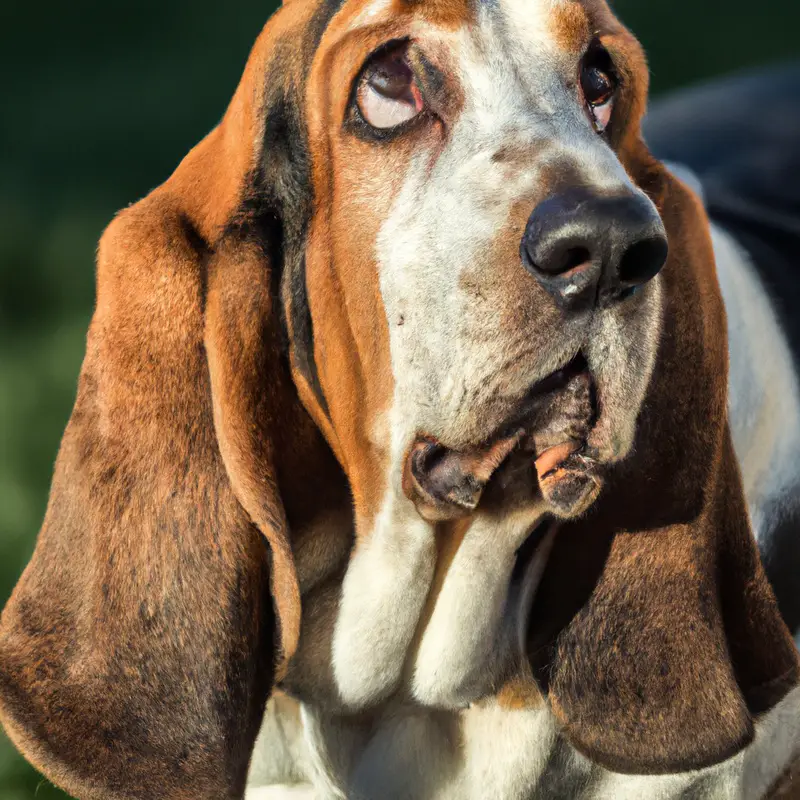
Physical Characteristics
Basset Hounds are known for their unique physical characteristics.
They have a long body and short legs, which gives them a low stature.
Their ears are long and droopy, reaching past their nose.
Basset Hounds also have a prominent nose, perfect for picking up scents during hunts.
Their loose, wrinkled skin adds to their charm.
Overall, their physical features contribute to their exceptional sense of smell and tracking abilities.
Understanding the Hunting Instinct
Definition of Hunting Instinct
The hunting instinct refers to an innate and natural behavioral drive in animals, including dogs, to locate, pursue, and capture prey.
It is a deeply rooted survival instinct that has been present in dogs for thousands of years.
The hunting instinct is characterized by a strong prey drive, keen senses, and specific behaviors such as tracking, stalking, and chasing.
Dogs with a strong hunting instinct may display behaviors like sniffing, digging, and even barking or howling when they sense potential prey.
Understanding this instinct is essential for managing and training dogs, like Basset Hounds, that have a strong predisposition for hunting.
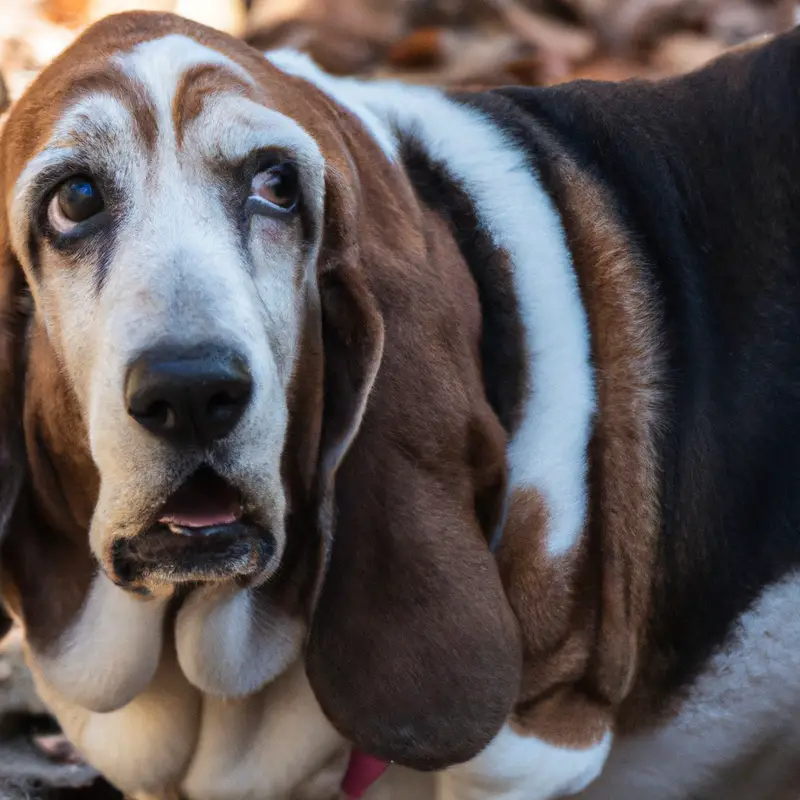
Evolutionary Basis of Hunting Instinct
The hunting instinct in dogs has evolved over thousands of years.
It is rooted in their ancestors, who relied on hunting for survival.
Dogs were domesticated from wolves, and this instinct has been passed down through generations.
The evolutionary basis of hunting instinct lies in the need for food and protection.
Dogs developed sharp senses, such as smell and hearing, to track and catch prey.
Their natural instincts drive them to chase, search, and retrieve.
This instinct varies in intensity among different breeds, with some dogs displaying a stronger hunting drive than others.
How Hunting Instinct Manifests in Dogs
A dog’s hunting instinct manifests in various ways, showcasing their natural behaviors and instincts.
Here are a few ways hunting instinct can be seen in dogs:
- Scent Tracking: Dogs have an exceptional sense of smell, allowing them to track scents over long distances. They may follow a trail left by other animals or search for hidden objects based on their scent.
- Chasing: Dogs may exhibit a strong desire to chase moving objects, such as squirrels or birds. This behavior is rooted in their ancestral need to pursue prey.
- Retrieving: Some dogs have a natural instinct to retrieve objects, which simulates bringing back hunted prey to their humans.
- Prey Drive: Dogs with a high prey drive may exhibit intense focus and determination when engaging with small animals or toys. This behavior reflects their instinct to catch and capture prey.
It’s important to understand and manage a dog’s hunting instinct to ensure their safety and the well-being of other animals.
Basset Hounds and Their Hunting Instinct
Basset Hounds as Scent Hounds
Basset Hounds are known for their incredible sense of smell, making them excellent scent hounds.
This means they have a strong instinct to track and follow scents.
It’s in their nature to use their noses to sniff out prey or search for items.
Bassets have an exceptional ability to pick up and follow scent trails due to their long ears, which help to capture and direct scents towards their nose.
Their sense of smell is so powerful that they can even detect scents that are days old.
This natural ability makes Basset Hounds exceptional scent hounds.
Traits That Make Basset Hounds Good Hunters
Basset Hounds have several traits that make them good hunters.
Firstly, their incredible sense of smell is a key factor.
They have a keen nose that can track scents for miles, which makes them excellent at finding and following trails.
Secondly, their low and sturdy build enables them to navigate through various terrains, such as dense underbrush and rough terrain.
Moreover, their long ears help trap scents and direct them towards their nose.
Lastly, their patient and persistent nature allows them to stay focused on a scent until they locate the source.
These combined traits make Basset Hounds well-suited for hunting activities.
Examples of Hunting Behavior in Basset Hounds
Basset Hounds are known for their hunting behavior, and here are some examples of that instinct in action:
- Scent tracking: Bassets have an excellent sense of smell and can track scents for long distances. They will eagerly follow a scent trail, whether it’s a small animal or an interesting smell.
- Digging: Bassets have a natural inclination to dig, which is a behavior often associated with hunting. They may dig in the yard or even inside the house in search of something they perceive as prey.
- Howling and baying: When a Basset Hound is on the hunt or feels an urge to hunt, they may let out distinct vocalizations called howling or baying. This behavior serves to alert other dogs and their human companions.
- Chasing: Basset Hounds may instinctively chase after small animals, such as squirrels or rabbits. Their low center of gravity and strong desire to pursue can make them determined and focused in their pursuit.
These are just a few examples of the hunting behavior that Basset Hounds may exhibit. It’s important to understand and manage this instinct to ensure a harmonious living environment with your furry friend.
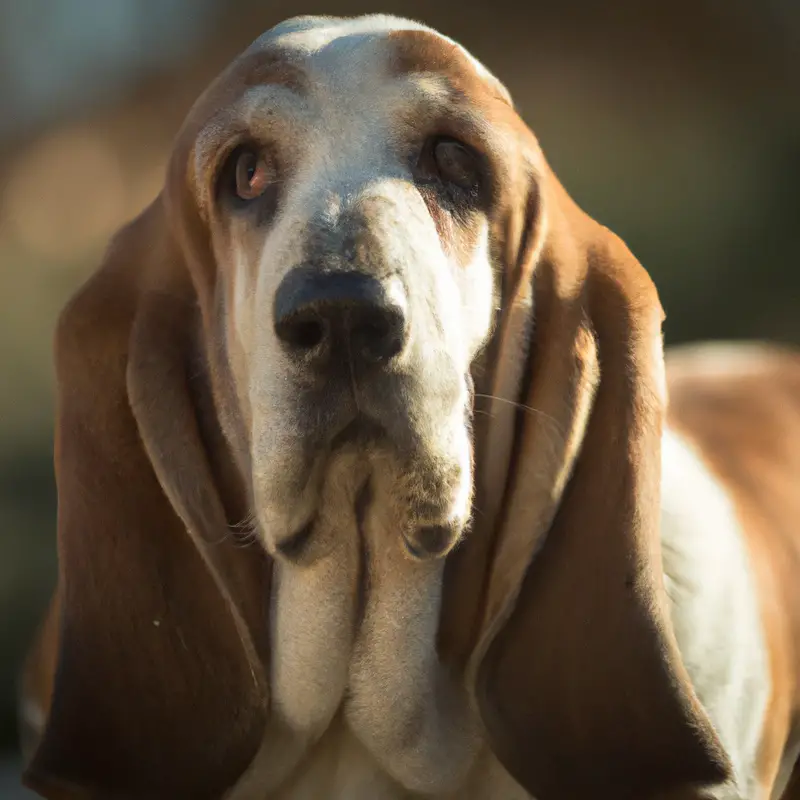
Managing a Basset Hound’s Hunting Instinct
Indoor and Outdoor Activities to Channel the Instinct
To channel a Basset Hound’s hunting instinct, both indoor and outdoor activities can be helpful. Indoors, you can engage your Basset Hound with interactive toys, scent games, and puzzle feeders.
These activities tap into their natural ability to track scents and keep their minds stimulated.
Outdoors, you can take them on long walks, hikes, or even offer them the opportunity to participate in tracking or scent work activities. These activities allow them to use their keen sense of smell and fulfill their instinct to explore and track scents.
With these activities, you can provide an outlet for their hunting instincts in a controlled and enjoyable manner.
Training Techniques to Control Hunting Behavior
Controlling a Basset Hound’s hunting behavior requires consistent training and positive reinforcement. Here are some effective techniques:
- Recall Training: Teach your Basset Hound a reliable recall command, such as “come” or a whistle. Use high-value treats as rewards and practice in different environments to strengthen their response.
- Distract and Redirect: When you notice your Basset Hound displaying hunting behavior, redirect their attention to a more appropriate activity, such as playing with toys or practicing obedience commands.
- Leash Control: Keep your Basset Hound on a leash during walks to maintain control and prevent chasing wildlife. Gradually expose them to different distractions while ensuring they remain calm and focused.
- Environmental Enrichment: Provide mental stimulation through puzzle toys, scent games, and interactive activities. This helps satisfy their hunting instincts in a safe and controlled way.
- Consistent Boundaries: Set clear boundaries and rules for your Basset Hound. Reinforce positive behaviors and discourage hunting behaviors through consistent training and reward-based techniques.
Remember, managing a Basset Hound’s hunting instinct requires patience, consistency, and understanding. With proper training and reinforcement, you can have a harmonious relationship with your hunting-loving companion.
Tips for a Harmonious Living with a Hunting-Instinct Basset Hound
Living harmoniously with a hunting-instinct Basset Hound can be challenging, but with some tips, it’s definitely doable.
First, provide plenty of mental and physical stimulation through activities such as puzzle toys and scent games.
Second, establish consistent training routines to reinforce commands like “leave it” and “drop it” to control their hunting behavior.
Third, create a secure and escape-proof outdoor space for them to explore without running off.
Lastly, always supervise them around small animals and be cautious during walks to prevent them from chasing prey.
Remember, patience and consistency are key to a harmonious life with your hunting-instinct Basset Hound.
Final Verdict
It is clear that Basset Hounds possess a strong hunting instinct rooted in their breeding and evolutionary history. From their keen sense of smell to their determination and persistence, these dogs are natural-born hunters.
Managing their hunting instinct requires a balanced approach of providing appropriate outlets for their energy and training techniques that redirect their focus.
By understanding and embracing their natural instincts, we can create a harmonious living environment with our Basset Hound companions. Whether it’s through engaging activities or consistent training, we can ensure that their hunting instincts are channeled in a way that benefits both the dog and the household.

